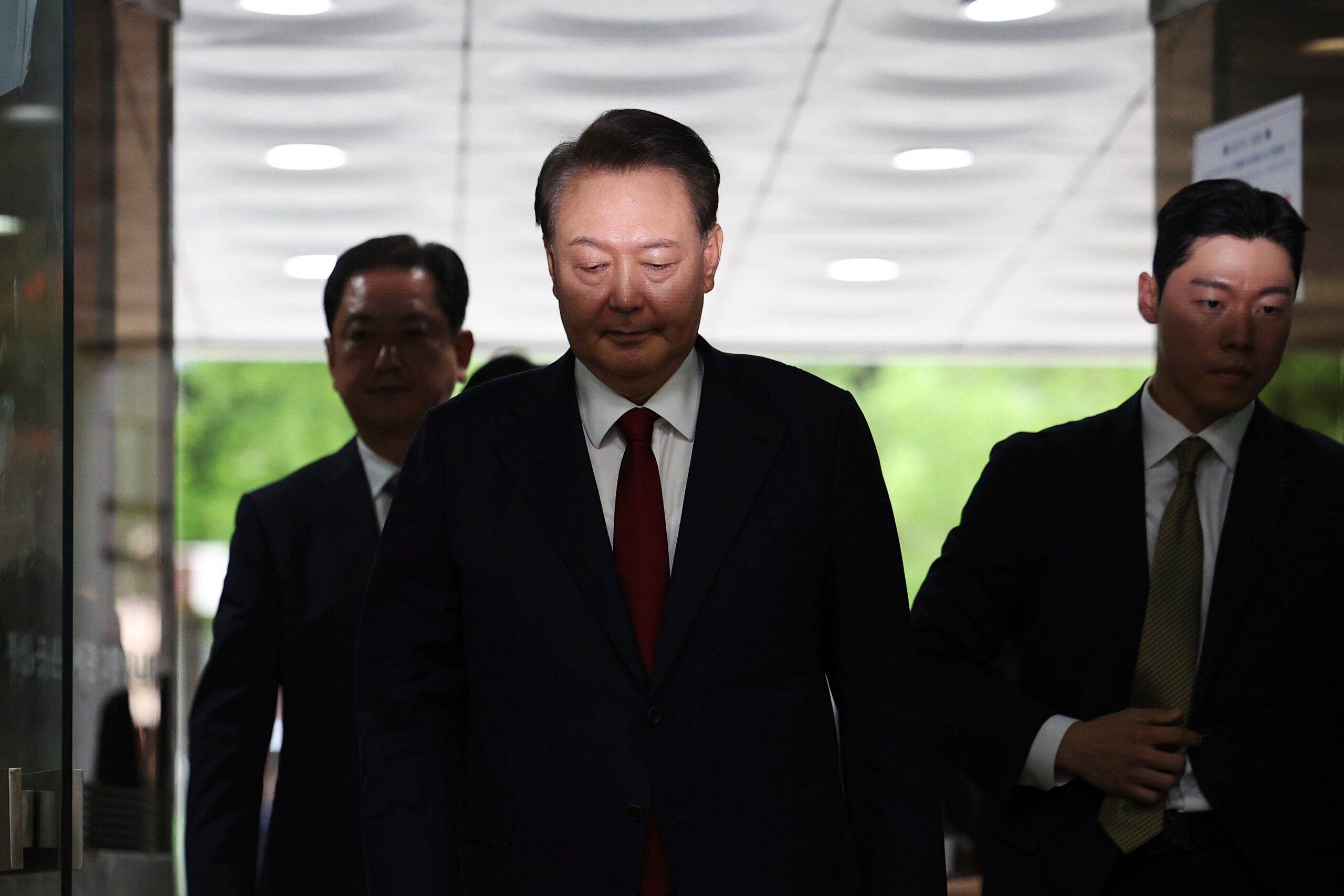SEOULA Early on Thursday, a South Korean court accepted a special prosecutor’s argument that former President Yoon Suk Yeolon presents a risk of destroying evidence and authorized his second arrest on charges linked to his brief declaration of martial law in December.
Four months after his release in March, when the Seoul Central District Court reversed his January arrest and permitted him to stand trial for rebellion without being detained, Yoon was returned to a detention facility outside the capital by the arrest order issued by the court.
Under the direction of special prosecutor Cho Eun-suk, a team of detectives is working on his criminal case. They are pursuing more allegations related to Yoon’s authoritarian push, such as delaying official responsibilities, abusing power, and fabricating official papers.
After questioning him twice, Cho’s team requested an arrest order from the court on Sunday.
The arrest request was deemed excessive and baseless by Yoon’s attorneys. They took a while to respond to the court’s decision to authorize Yoon’s arrest. Yoon was officially ousted from office in April when his impeachment was affirmed by the Constitutional Court.
After showing up at the court on Wednesday afternoon for a hearing to consider the special prosecutor’s motion, Yoon did not answer any questions from media. Yoon was brought to the detention facility to await the court’s ruling following the roughly seven-hour session.
Yoon’s recent arrest may signal the start of a lengthy detention stay that might last months or more. While the special prosecutor works to indict Yoon on other crimes, he may be initially held at the center for up to 20 days.
Yoon may remain under custody for up to six months pending a preliminary court decision if he is charged with new offenses. Yoon would serve the sentence if the court found him guilty and sentenced him to prison, as the matter might go to higher courts.
Cho’s team’s senior investigator, Park Ji-young, stated that Yoon will be questioned once again on Friday. Yoon’s attorneys did not immediately provide an explanation for his absence from a hearing held Thursday in the Seoul court over his previous indictment on charges of rebellion.
The former conservative leader accused his liberal opponents of using their legislative majority to thwart his plans and justified the declaration of martial law on December 3 as a necessary measure to silence them. However, a quorum of members in the National Assembly broke past a barricade of highly armed troops and voted to lift Yoon’s proclamation, which was only in effect for a few hours.
Lawmakers impeached Yoon on December 14 and public prosecutors charged him on January 26 with orchestrating an attempted insurrection, characterizing his power grab as an unlawful attempt to capture the legislature and electoral offices and imprison political opponents.
The death penalty or life in prison are the possible punishments for the charges.
Yoon is also accused of illegally using the presidential security forces, which resemble a private army, to thwart an initial attempt by law enforcement to arrest him at his home in early January and of imposing martial law without following the proper legal procedures, such as discussion by a formal Cabinet meeting.
Lee Jae Myung, his liberal opponent and current president, who defeated him in a June snap election, this month signed legislation to begin extensive special investigations into Yoon’s martial law fiasco and other criminal claims involving his government and wife.
